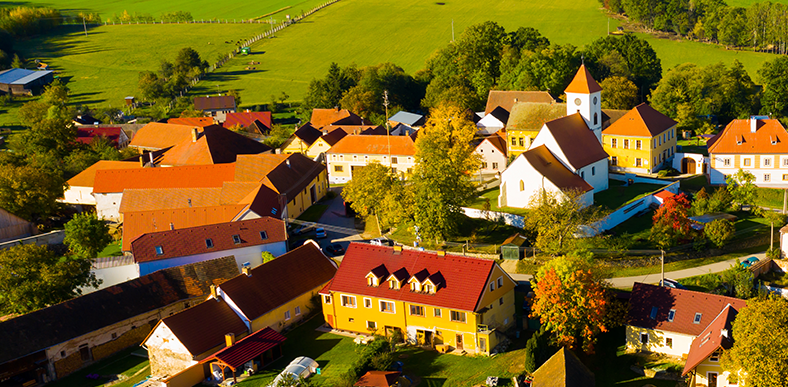Photovoltaics, an energy adapted to the territories

To meet the demand for green electricity, territories will need to welcome and encourage the installation of renewable energy sources, including photovoltaic energy.
The French landscape must thus be imagined with many more production sites to replace imported fossil fuels (gas and oil). This transition to decarbonized energy is a real challenge for land planning. Therefore, it is essential to install photovoltaic projects while fully considering the landscape and environmental challenges of the site.
Installations compatible with the environment and biodiversity
Each project undergoes a fauna and flora study over four seasons to assess the land and the biodiversity present in the area. This study proposes measures to minimize impacts as much as possible and, if necessary, reduce and compensate them. The monitoring of these measures is managed by Photosol’s environmental team and will soon be supported by the future Renewable Energy Observatory.
Installations respectful of landscapes and heritage
Landscape integration is a key element in the design and planning of a project. Landscape studies and co-visibility assessments are always conducted in advance, along with working with local residents to minimize the visual impact of the installation. Landscape integration measures such as planting hedges and trees are implemented, and the placement of projects is adjusted to best suit the amenities of the territory and its topography.
Projects beneficial for all
The path to energy transition will require efforts from all, but we all have something to gain! This transition offers significant benefits for territories, residents, the photovoltaic industry, the agricultural sector, and society as a whole.
For the territory
Photovoltaic installations provide significant economic benefits for local communities. Municipalities, intermunicipalities, and departments benefit from stable fiscal revenues throughout the life of the solar parks. These projects also contribute to the local economy by mobilizing businesses for activities such as hedge planting and maintenance or fence installation, while creating numerous jobs in the region.
For the residents
Residents can benefit from support through voluntary schemes that increase their involvement and acceptance of projects. These initiatives include opportunities for participatory financing, discounts on electricity bills, or contributions to local sponsorship projects, providing direct positive impacts for the surrounding communities.
For the photovoltaic sector
The developed projects allow for the sale of electricity through two models: a guaranteed tariff from the state, which ensures financial stability, or a private agreement contract, offering greater flexibility. Additionally, these projects actively contribute to the relocation of photovoltaic industrial production in France, thus supporting the development of a competitive and sustainable national sector.
For the agricultural community and project partners
Photosol has always emphasized that the value created by an agrivoltaic project should be distributed as equitably as possible between its stakeholders, including the landowner, the farmer, and the agricultural community as a whole. Photosol was the first producer to sign an agreement with the Nièvre Chamber of Agriculture to support the region’s structuring agricultural and food projects.
Photovoltaic projects play a key role in combating climate change by contributing to the reduction of greenhouse gas emissions.
They also strengthen France’s energy sovereignty while providing competitive and affordable energy. These initiatives demonstrate the positive impact of renewable energy on public finances and the daily lives of citizens.
